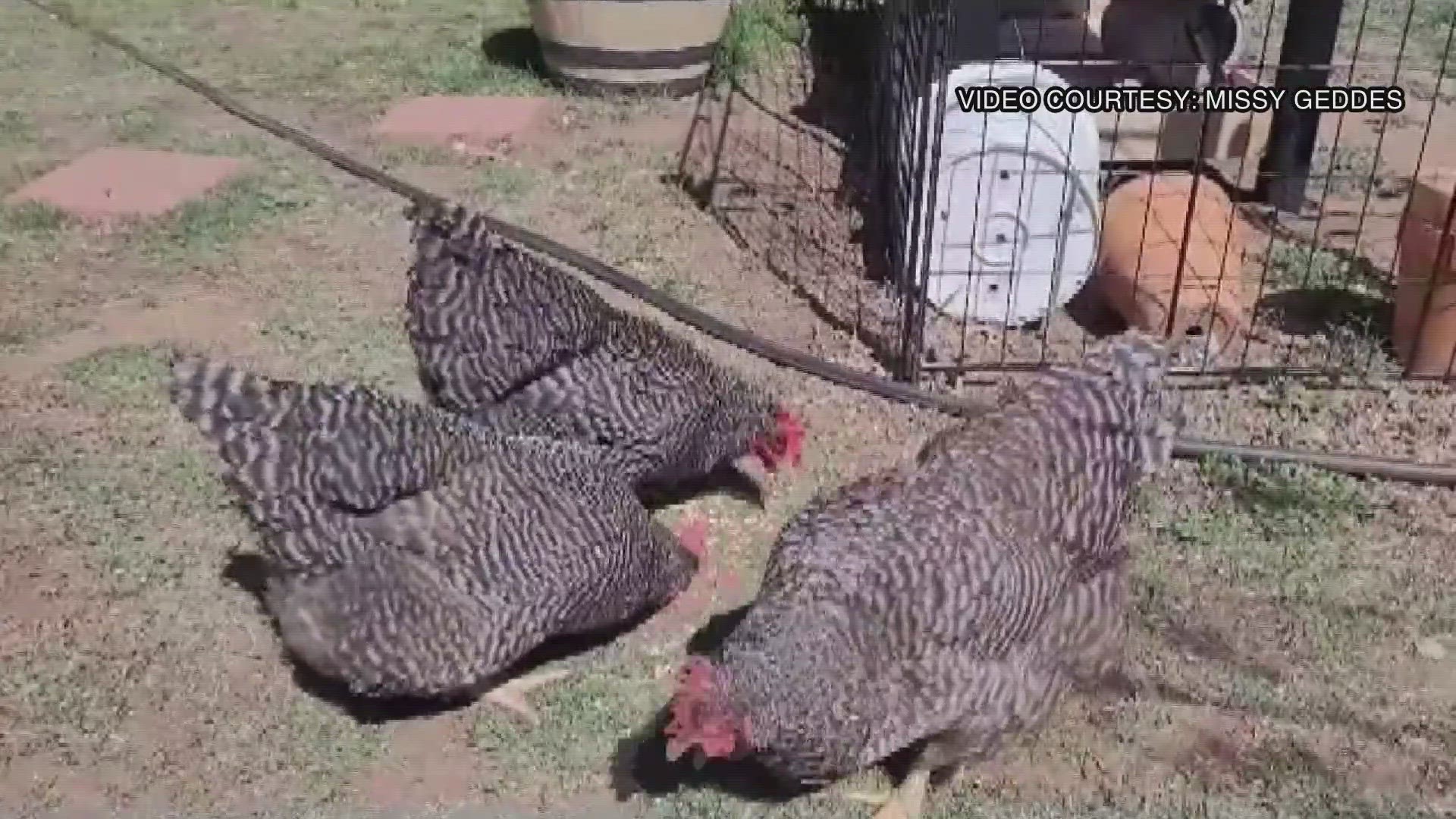TEXAS, USA — Earlier this week, one of the largest egg producers in the country got a nasty surprise when their chickens and eggs got a strain of bird flu.
Cal-Maine Foods Inc. has temporarily stopped the production of eggs because of this.
According to Texas Department of Agriculture Commissioner Sid Miller, Cal-Maine only recently discovered the outbreak.
“The owners of the plants have a higher incidence of mortality, so they notified the state veterinarian in Pecos and they did testing," Commissioner Miller said. "So I believe that was last Monday.”
Bird flu is a disease similar to influenza that normally affects birds, but can affect humans in very rare instances.
Commissioner Miller said a strain was recently found within dairy farms, but hypothesizes that travelling flocks of birds could be transmitting the disease.
“It's spread by waterfowl and this is migration season. So, the good news is migration season is just about out so we'll be out of the woods on this probably a week or two weeks tops," Commissioner Miller said. "That will give us 10 months to figure out how to address this.”
Safety protocols call for all birds affected by bird flu to be, as Commissioner Miller said, depopulated.
“It had 1,600,000 hens and 377,000 pullets so it's not a small operation," Commissioner Miller said. "All those all those birds had to be disposed and depopulated.”
While not all of the birds are tested, for the sake of the flock and the eggs, companies have to follow protocol to the letter.
“We don't test all birds, but if any of them test positive, than we depopulate the whole flock," Commissioner Miller said. "Depending on how it’s done, they either had to be composted or buried. In other words, they have to be totally gotten rid of."
After the chickens are taken care of, the building is sanitized and cleaned while new bedding is brought in.
As for the eggs, they carry the pathogen as well, so they need to be taken care of as well, but it shouldn't be slowing down production.
“About a week's worth of eggs there in that, so we have to destroy all the eggs," Commissioner Miller said. "This company Cal-Maine Foods is our largest egg producer. They're very good operators but this one facility is less than 4% of their total production.”
As for people who may be worried about their breakfast eggs coming with a side of bird flu, it is highly unlikely for bird flu to be passed on to humans.
Commissioner Miller also said properly preparing and cooking eggs would and should eliminate any worries that people may have about their eggs. So, they would be safe for consumption.
He also wanted to assure the public that consumers won't be getting affected at the stores and with their wallets.
"The overall scheme of things is that it won't be enough to affect the consumers price of eggs and none of those eggs got into the food chain," Commissioner Miller said.
Cal-Maine Foods, Inc. released a statement on their website, with part of the statement saying, "The Company continues to work closely with federal, state and local government officials and focused industry groups to mitigate the risk of future outbreaks and effectively manage the response."
According to Commissioner Miller, the facility will be back up and running in about five or six months.

